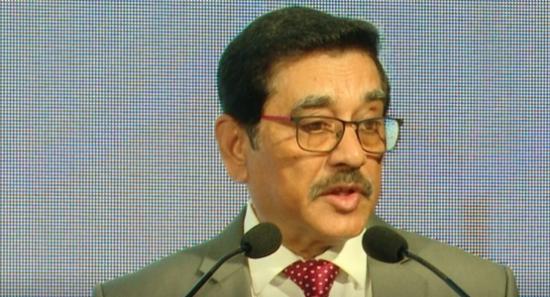.webp)

IMF Urges Sri Lanka to Stay the Course Amid Global Uncertainty
COLOMBO (News 1st); Sri Lanka’s economic recovery under the International Monetary Fund (IMF)-supported program is showing promising signs of progress, according to a statement by Kenji Okamura, Deputy Managing Director and Acting Chair of the IMF Executive Board.
Following the Board’s recent review of Sri Lanka’s performance, Okamura commended the country’s reform efforts while cautioning that steadfast implementation remains crucial amid emerging risks.
“Sri Lanka’s performance under the Fund-supported arrangement is generally strong,” Okamura stated, noting that key reforms are beginning to yield tangible results.
“Reforms are bearing fruit, with economic growth strengthening, inflation remaining low, reserves accumulating, and fiscal revenues improving. The debt restructuring process is nearing completion. The economic outlook is positive, but downside risks have increased. In case shocks materialize, the authorities should work closely with the Fund to assess the impact and formulate policy responses within the contours of the program. Steadfast program implementation will be crucial,” he said.
The country has seen a strengthening of economic growth, sustained low inflation, an accumulation of foreign reserves, and improved fiscal revenues. These developments mark a significant turnaround for an economy that has faced severe challenges in recent years.
The debt restructuring process, a cornerstone of Sri Lanka’s recovery strategy, is nearing completion. Okamura emphasized the importance of finalizing bilateral agreements with remaining official and commercial creditors, calling it a “priority” for the government. The progress made thus far in restructuring the nation’s debt was described as “noteworthy.”
Despite the positive outlook, the IMF warned that downside risks have increased. In the event of economic shocks, the Fund urged Sri Lankan authorities to collaborate closely with the IMF to assess impacts and formulate policy responses within the framework of the existing program.
Okamura stressed the need for sustained revenue mobilization, including strengthening tax exemption frameworks, boosting compliance, and enhancing public financial management. Effective arrears management and smoother execution of capital spending within the fiscal envelope are also seen as vital to fostering medium-term growth.
The IMF praised Sri Lanka’s restoration of cost-recovery electricity pricing and the operationalization of automatic electricity tariff adjustments, calling these measures “commendable” and essential for containing fiscal risks.
On the monetary front, the IMF advised continued prioritization of price stability, supported by a firm commitment to eliminate monetary financing and safeguard central bank independence. Greater exchange rate flexibility and the gradual phasing out of administrative balance of payments measures were highlighted as critical steps to rebuild external buffers and enhance economic resilience.
The statement also addressed the financial sector, urging the resolution of non-performing loans, improved governance and oversight of state-owned banks, and enhancements to insolvency and resolution frameworks. These reforms are deemed necessary to revive credit growth and support private sector development.
Okamura underscored the importance of structural reforms to unlock Sri Lanka’s economic potential. He called on the government to continue implementing governance reforms and advancing trade-facilitation measures to boost export growth and diversification.
Other Articles
Featured News





.png )






























.gif)